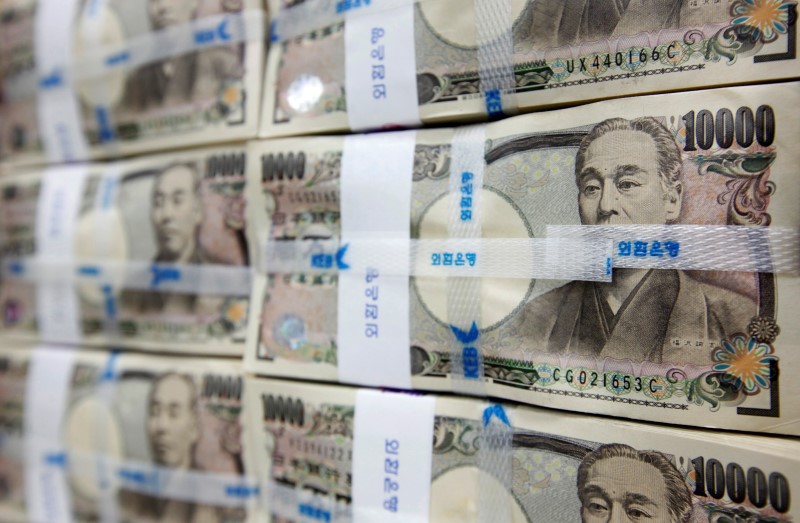* Yen holds gains vs dollar and euro as stocks sag
* Dollar index steady, still in reach of 2-month high
* Canadian dollar struggles near 6-week lows as oil slides (Updates prices, adds details and quotes)
By Shinichi Saoshiro
TOKYO, May 24 (Reuters) - The yen held on to gains on Tuesday, shored up by investors' risk aversion and receding expectations that Japan will weaken the currency after a fresh warning by the United States last week against intervention.
Commodity-linked currencies such as the Australian and Canadian dollars were on the back foot, weighed down by a continuing decline in commodities such as crude oil.
The euro treaded water at 122.635 yen EURJPY=R after sliding 0.8 percent overnight.
The dollar nudged up 0.1 percent to 109.385 yen JPY= , having fallen to as low as 109.120 on Monday when it shed nearly one percent.
The greenback had risen to a three-week high of 110.590 late last week as prospects of the Federal Reserve hiking interest rates as early as June were revived.
But the dollar has given back a large part of its gains to the yen after a weekend G7 meeting of central bankers and finance ministers concluded with the United States warning Japan against intervening to weaken the yen, a rift that is perceived as preventing Tokyo from acting.
Dollar/yen showed little response after the Nikkei quoted Japanese Finance Minister Taro Aso as saying it would be good if the pair settled around 109 yen. decline in global equities at the start of the week has given an added lift to the safe-haven yen, which recently soared to an 18-month high of 105.55 to the dollar after the Bank of Japan stood pat on monetary policy.
Hawkish comments from Fed officials overnight such as St. Louis Fed President James Bullard and San Francisco Fed President John Williams have done little to support the dollar against its Japanese counterpart. yen gained as risk aversion overcame the Fed officials' hawkish views. Upward pressure on the yen was stronger due to weaker stocks and falling commodities," said Junichi Ishikawa, FX analyst at IG Securities in Tokyo.
"That said, the dollar index has stood tall overall amid a significant rise in the two-year U.S. Treasury yield. Trades preparing for a potential Fed rate hike in June are likely to continue."
For further clues on the likelihood of a U.S. rate hike in June or July, the markets will sift through comments from Fed Chair Janet Yellen, who is due to speak on Friday at a Harvard University-hosted panel event.
In addition to the prospect of the U.S. central bank raising rates, the dollar could also look to BOJ monetary policy for potential support.
"There is a good probability of the yen being sold on expectations towards the BOJ easing at the June 15-16 policy meeting. And with the market again trying to price in the possibility of a Fed hike in June or July, monetary policy divergence is likely to become a temporary theme," wrote Shusuke Yamada, chief FX strategist at Bank of America Merrill Lynch (NYSE:BAC) in Tokyo.
The greenback fared better against its other peers amid expectations the U.S. central bank would tighten monetary policy sooner than the markets had expected.
The euro edged down 0.1 percent to $1.1206 EUR= , edging back towards a seven-week trough of $1.1180 struck last Thursday.
The dollar index was effectively unchanged at 95.326 .DXY , not too far from a two-month high of 95.502 touched last week.
The Australian dollar dipped 0.2 percent to $0.7213 AUD=D4 , hovering just above a 2-1/2-month low of $0.7175 plumbed last week.
The Canadian dollar stood near C$1.3174 per dollar CAD=D4 , a six-week trough hit on Monday.
U.S. crude oil CLc1 has slid for the past four sessions on the back of a stubborn global glut. O/R
The Nikkei .N225 lost 0.7 percent and MSCI's broadest index of Asia-Pacific shares outside Japan .MIAPJ0000PUS fell 0.4 percent. (Editing by Kim Coghill and Jacqueline Wong)
